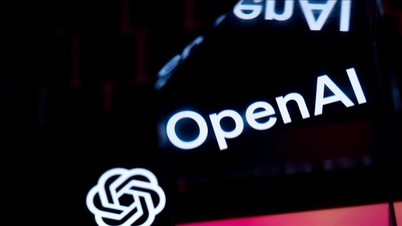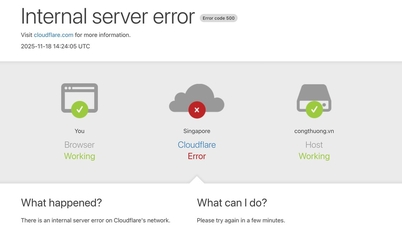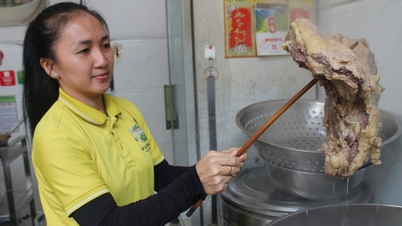
Chatbots help humans answer basic questions
“Hello, I am a bank virtual assistant. How can I help you?” - greetings like these from AI Chatbots are becoming more and more popular on customer care (CSKH) channels of Vietnamese businesses.
AI chatbots, once a “fun” feature, have gradually become an important part of the customer service process in many fields. But can chatbots completely replace customer service staff as the automation dream that businesses hope for?
What has AI Chatbot done?
In recent years, AI chatbots have been increasingly applied by businesses in customer service.
From banking, e-commerce, telecommunications to education , real estate, healthcare, AI chatbots are taking on many tasks previously done by humans.
Not only stopping at answering frequently asked questions (FAQ), chatbots can now support account information lookup, order checking, appointment booking, and even product consultation according to customer needs.
The biggest difference of modern chatbots lies in their natural language processing (NLP) capabilities.
Thanks to the integration of advanced AI models like GPT, BERT, chatbots no longer require users to enter exact keywords.
Chatbots can now understand natural language, respond flexibly, and remember conversational context to provide more appropriate responses.
How far has Chatbot replaced customer service staff?
In frontline tasks, AI chatbots have helped businesses automate about 50-70% of customer service workload.
Requests like information lookup, basic problem solving, and after-hours support can all be handled by chatbots.
This significantly reduces the workload on staff, while improving customer experience as the service can operate 24/7.
The outstanding advantage of chatbots is the ability to serve 24/7, handle large volumes of requests at the same time and help businesses save on personnel costs.
On the other hand, chatbots sometimes still fail to answer complex questions or misunderstand customers, leading to an imperfect experience.
Investing in high-quality AI technology and training chatbots on enterprise data is key to improving efficiency.
What future for AI chatbots?
With the constant advancement of AI technology, the future of chatbots in customer service is very promising.
New generation chatbots can communicate synchronously across multiple channels, integrate voicebots to handle voice calls, and perform complex tasks such as refunds and service unlocking automatically.
In particular, the ability to learn from customer data will help chatbots increasingly personalize services, bringing better experiences to users.
Humans and AI: Collaboration, Not Replacement
Although AI is getting smarter, experts say that chatbots cannot completely "replace humans" in customer service.
The role of customer service agents will gradually shift to jobs that require empathy, sophistication and creativity, while chatbots handle repetitive and automated tasks.
The combination of human and AI is the optimal model to improve customer care quality in the digital age.
Source: https://tuoitre.vn/chatbot-ai-giac-mo-tu-dong-hoa-cham-soc-khach-hang-co-thanh-hien-thuc-20250604141948324.htm


![[Photo] 60th Anniversary of the Founding of the Vietnam Association of Photographic Artists](/_next/image?url=https%3A%2F%2Fvphoto.vietnam.vn%2Fthumb%2F1200x675%2Fvietnam%2Fresource%2FIMAGE%2F2025%2F12%2F05%2F1764935864512_a1-bnd-0841-9740-jpg.webp&w=3840&q=75)




![[Photo] National Assembly Chairman Tran Thanh Man attends the VinFuture 2025 Award Ceremony](/_next/image?url=https%3A%2F%2Fvphoto.vietnam.vn%2Fthumb%2F1200x675%2Fvietnam%2Fresource%2FIMAGE%2F2025%2F12%2F05%2F1764951162416_2628509768338816493-6995-jpg.webp&w=3840&q=75)


































































































Comment (0)